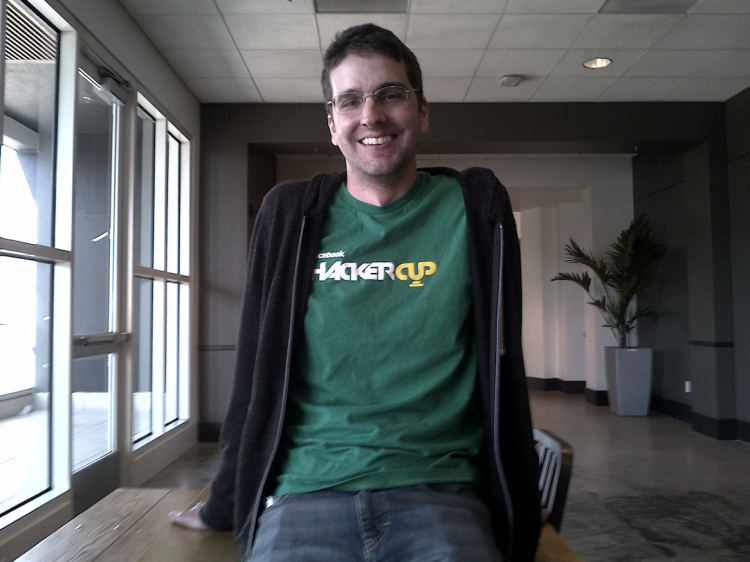MENLO PARK, CALIF. — A few things about Facebook’s David Alves, the super geek behind the social network’s hugely successful Hacker Cup, which draws the brightest coding prodigies from around the world.
He’s 31 and married. He dropped out of college to work at a startup. He wears glasses. He just adopted a dog named Lucie from a shelter. He loves to ski. His father is a scientist who worked with lasers and did a stint at Hewlett-Packard.
David Alves is also a coding wunderkind.
“I started writing my own computer games when I was 11 or 12. They weren’t great games, they were bad games,” Alves said in his quietly reflective voice, seated at a table in a room with polished cement floors in Building 10 of the Facebook campus Friday.
Behind closed doors eight feet away, in a large conference room that looked like a high-tech version of a game show set, 22 brilliant young hackers from around the world hammered furiously at their keyboards, trying to solve complex hacking equations with titles like “Intervals of Love” and “Lunch at Facebook” at the social media giant’s 4th annual Hacker Cup. This year’s Hacker Cup finals started on Thursday, Feb. 20, and ended yesterday.
Alves is one of the main brains behind the event. This year, he and his team flew in hackers from 10 countries, putting them up at hotels and taking them to a Warriors game. The event has become one of the most anticipated gigs for young coders looking to make a name for themselves.
“They’re extremely talented coders,” Alves said. “Extremely good. It’s hard to measure, but they’re probably the 25 best in the world, or at least close to it.”
For the hackers, the competition is also a potential avenue to secure a Facebook internship, and for some, a full-time gig.
Alves was born and raised in Palo Alto, Calif. He attended UC Davis, dropped out to work for a series of startups, enrolled at San Jose State, and then landed a summer internship at Facebook in 2009. That led to a job, and, ultimately, to the Hacker Cup.
In most regards, he epitomizes Facebook’s working demographic: a young, quiet guy who thinks about coding equations while driving or making dinner.
Today, Alves is a member of Facebook’s Core Experiences Team, specifically working on the Android mobile application. He focuses almost exclusively on the news feed and navigation channels. For him, the lack of red tape inherent in Facebook’s “try anything” culture is what keeps him here.
And keeps him happy.
“There’s not a lot of barriers working here,” Alves said. “If it’s a good idea, we’ll go out and do it. There’s a ton of talented engineers here who build really great stuff.”
Alves provided insight into what newly hired coders undergo when they arrive at Facebook with wet feet. They start with a six week bootcamp to suss Facebook’s technology out. Facebook doesn’t hire people with specific jobs in mind, so after boot camp, engineers basically go where they fit best.
“When you start here, you do things all over the company. Fixing bugs one day and then working on a back-end project the next. At the end of boot camp, you’re placed in a specific group. And because Facebook is growing, it makes sense to just hire talented people.”
Behind Alves, groups of hackers poured out of the conference room, some sweaty, some looking drained. Russian was the loudest language emanating from the group.
“This is very rigid,” Alves said of the hackers vying for the $10,000 top prize. “You have to go in there and solve these problems in three hours.”
VentureBeat's mission is to be a digital town square for technical decision-makers to gain knowledge about transformative enterprise technology and transact. Learn More

